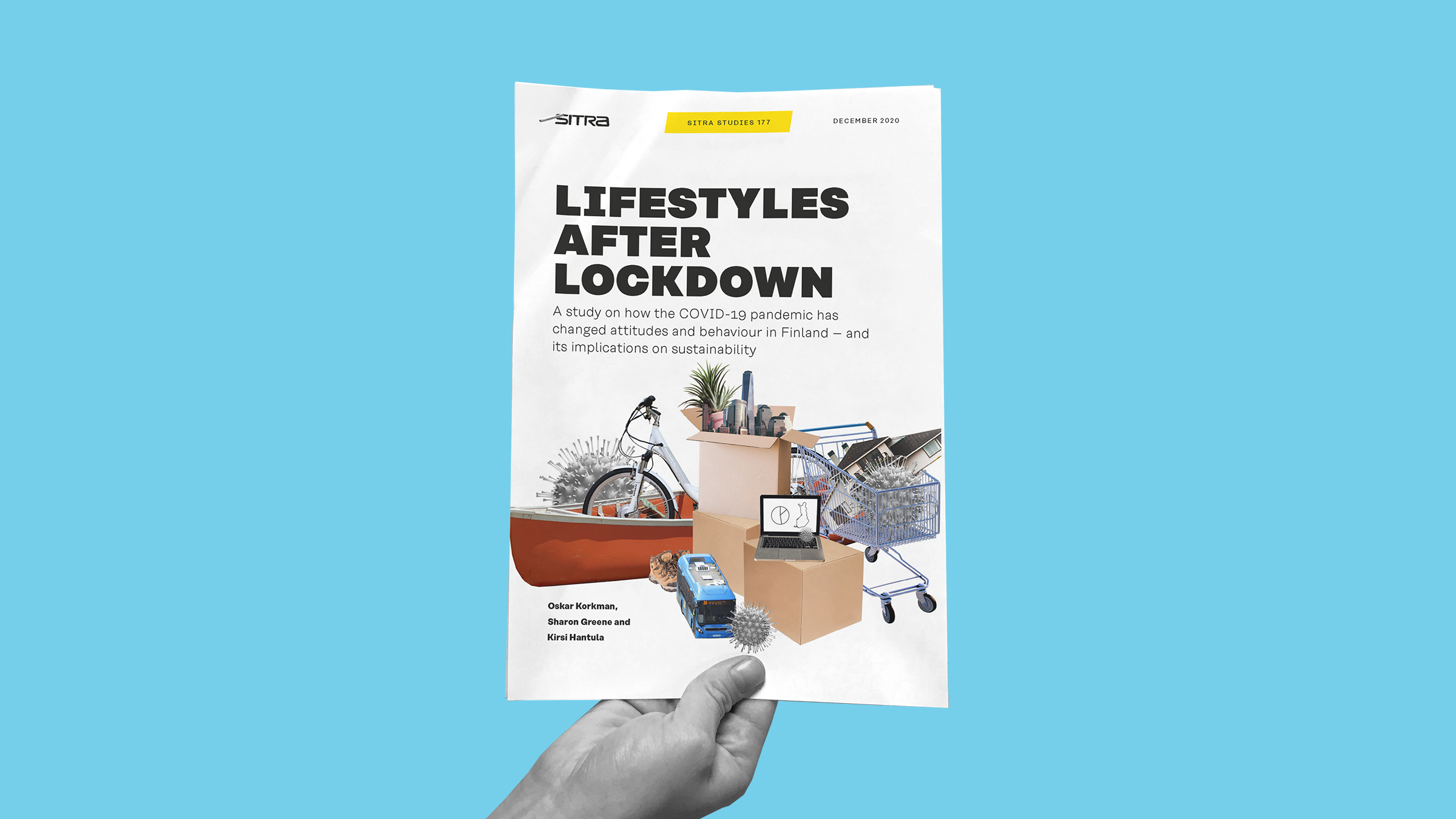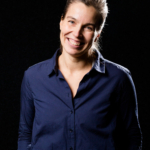Summary
The COVID-19 health crisis has disrupted everyday life in Finland and across the world. This report highlights findings related to the impact of the crisis on the values, attitudes and behaviour of city dwellers in Finland. The research began in June 2020 with a series of qualitative interviews and continued with a quantitative study and expert interviews conducted in September and October 2020.
The report is not a prediction of the future, but points to changing dynamics in everyday life that are driven by the COVID-19 crisis. These dynamics represent a seeding ground for more lasting change towards a more sustainable good life, provided that civil society and commercial interests come together and support the change with their actions.
As the pandemic is still going on while writing this report, it is difficult to say what additional marks the prolonged crisis will leave. But it appears that the quite successful management of the crisis thus far has added an extra flavour to national pride in Finland. This might of course be jeopardised, depending on how the situation evolves in the country.
The report highlights a more confident Finnish mindset. It portrays how this mindset creates a foundation for a more long-term adoption of some of the behavioural changes seen during the most severe COVID-19-related restrictions in the spring 2020. Some of these changes are clearly opportunities that stretch across wide sections of the population, and others are more emergent and driven by the younger generations and forerunners, a section of the population we refer to as the Leading Edge. Those in this Leading Edge group are, to an extent, people who push the boundaries and provide clues about changes taking place around us.
In the report, they have been analysed in relationship to two other segments, referred to as Fast Followers and the Mid Mass, in order to shed light on the likelihood of change becoming more broad-ranging, and at what pace.
The changes that we have identified in the everyday contexts of home, city life, work, travel and food build up to something we have defined as systemic opportunities. They concern broader cultural changes in Finland and should be further sustained or accelerated by using an orchestrated approach across industries and private and public organisations. We have identified three such systemic opportunities, all of which point to the same conclusion: that Finnish culture is changing and the emerging lifestyle is less about excess.
By tapping into the identified systemic opportunities, the transition towards a more sustainable lifestyle can be supported, perhaps even accelerated.
Against this backdrop we have defined the following key messages.
- The COVID-19-related changes in people’s thinking and everyday lives could boost the adoption of a more sustainable lifestyle. People have taken a step back from the “hyper-activity” of modern life. They are prepared to accept that they, too, have a personal responsibility to drive a collective change for the better. Habits have been broken and space has been made for this change.
- People are redefining what it means to live a good life. The changes span different aspects of everyday life and concern what people eat, how they live in their homes and cities, how they work, how they travel, how they relate to nature and the environment, and what they expect from each other, their institutions and from companies.
- The demand for solutions that help people to live a sustainable good life is there, but companies and institutions have been slow to lead. There is clear evidence that people are ready to move, but society, institutions and companies are lagging behind in finding the ways to respond to the new demands.
- Companies and institutions developing solutions for a more sustainable lifestyle need to have a deep understanding of people’s everyday life. This will require new capabilities, ecosystems and knowledge of how to best respond to and accelerate the existing demand.

